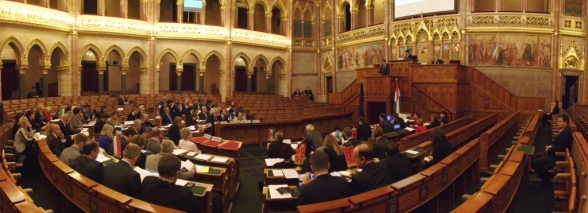The Session of the Parliamentary Assembly CEI-PD was preceded by meetings of general committees dealing with cultural, economic, political and issues of home affairs.
This year session of the Parliamentary Assembly CEI-PD covered topics such as regional politics, key elements of European territorial cooperation for the budget period 2014-2020 as well as priorities of macro-regional strategies.
During the session, it was pointed out that CEI member states should strengthen territorial cooperation through intensive and responsible involvement of regional and local authorities in planning and financial management, in the light of exploiting the possibilities offered by the new rules of the EU regional policy. It addition, the importance of effective use of money and investments in projects that represented good practice was stressed. At the session, the importance of the existing macro-regional strategies such as the "Strategy for the Danube Region" and "Strategy for the Baltic Sea Region" including an integrated framework for addressing the challenges of the EU Member States and third countries that were close geographically, was highlighted.
CEI member states were invited to continue joint cooperation within macro-regional strategies on the basis of common interests and support the initiative on "Adriatic-Ionian Strategy", which is being prepared.
The participants of the session were, inter alia, addressed by: Speaker of the National Assembly of Hungary Mr László Kövér, Secretary General of the CEI Mr Giovanni Caracciolo di Vietri and Vice President of the Committee for the Regions Ms Mercedes Bresso.
At the end of the session of the Parliamentary Assembly CEI PD, the Final Declaration was unanimously adopted and presidency of this Initiative was handed over to the Republic of Austria.
CEI is the oldest regional initiative in the area of Central and South-East Europe. It was established in 1989 and consists of 18 member states. The Central European Initiative is founded with the aim of nourishing political and socio-economic development in the region and avoiding creation of new dividing lines in Europe.









